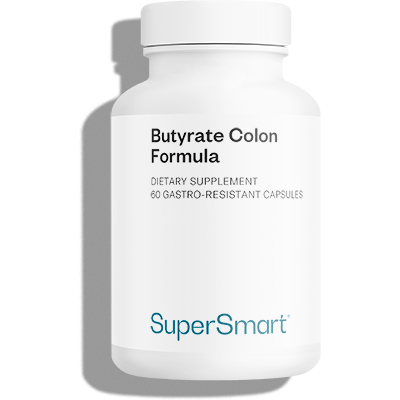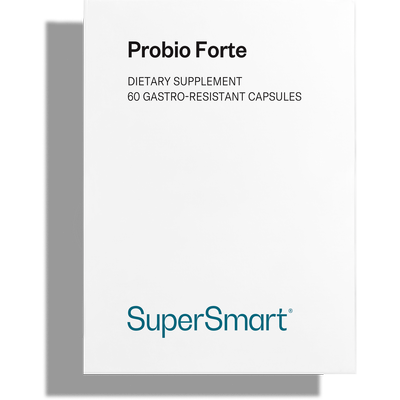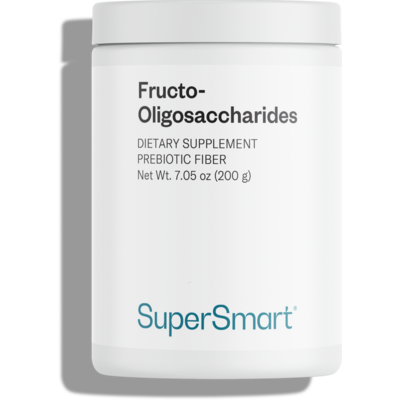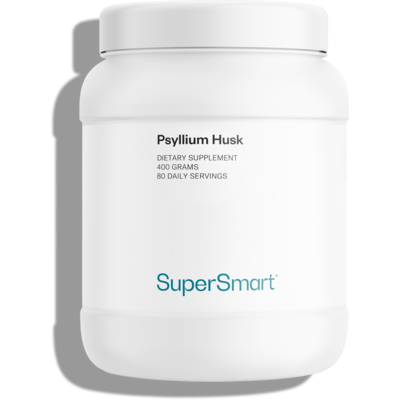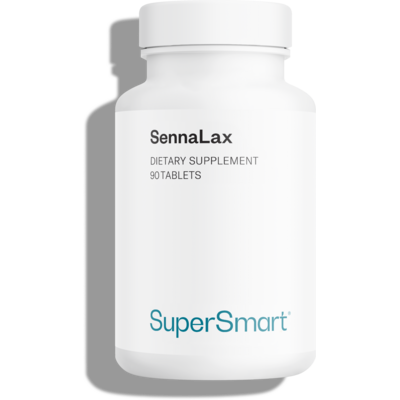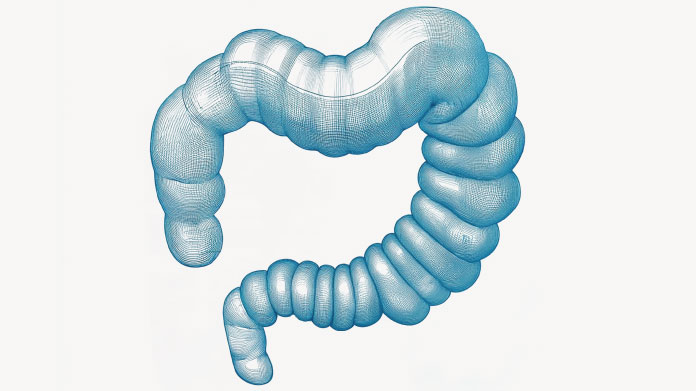Top 10 Foods Rich in Fibre
Are you looking for foods rich in fibre to improve your digestion, transit or satiety? Here are the 10 best foods to enrich your diet... naturally.

Dietary fibre: what you need to know
Dietary fibre is a non-digestible carbohydrate found exclusively in plants. Although our bodies do not break it down, it plays a fundamental role in our digestive and metabolic health (1).
There are two main categories of fibre:
- Soluble fibre (in fruit and vegetables), which dissolves in water to form a viscous gel: it slows digestion, limits blood sugar peaks and nourishes good intestinal bacteria.
- Insoluble fibre (in cereal products and leafy vegetables), which does not dissolve but swells: it increases the volume of stools, stimulates intestinal transit and contributes to better digestion.
A high-fibre diet (of both types) promotes:
- better intestinal regularity
- a balanced microbiota
- a lasting feeling of satiety (2)
Top 10 foods rich in fibre
Discover the top 10 best fibre-rich foods, from the least concentrated to the most concentrated. This ranking takes into account their soluble and insoluble fibre content, often present together in varying proportions.
10. Apple (9g/100g)
Apples, eaten with the skin on, are an excellent source of soluble fibre, particularly pectin.
This fibre helps to slow digestion, regulate cholesterol and provide a lasting feeling of satiety. A healthy fruit, better eaten whole rather than juiced!
9. Artichoke (11g/100g)
Rich in insoluble fibre, artichokes also contain inulin, a soluble prebiotic fibre that nourishes good intestinal bacteria.
It is also known to stimulate the liver and aid digestion.
8. Traditional muesli (11g/100g)
Unsweetened muesli is rich in rolled oats, dried fruit and seeds: it combines soluble and insoluble fibre.
An excellent choice for starting the day with a dose of fibre, energy and satiety.
7. Chickpeas (13g/100g)
Chickpeas are legumes that are very rich in insoluble fibre, and also contain soluble fibre.
They promote regular transit and slow digestion, ideal for stabilising blood sugar levels after a meal.
6. Lentils (16g/100g)
Lentils, green or red, are a major source of fibre, vegetable protein and micronutrients.
They support intestinal transit, while helping to improve satiety and regulate blood sugar levels.
5. White beans (18g/100g)
Very rich in insoluble fibre, white beans are also a source of iron, potassium and vegetable protein.
A perfect food for maintaining digestive health and regular transit.
4. Flageolet beans (23g/100g)
Flageolet beans contain both soluble and insoluble fibre, which stimulate intestinal function while regulating nutrient absorption.
They are an easy addition to many vegetarian dishes.
3. Flaxseeds (27g/100g)
Flaxseeds are a powerful concentrate of insoluble fibre. They need to be crushed or ground to release their nutrients.
Rich in mucilage (plant substances that swell on contact with water and take on a viscous consistency), they are perfect for aiding transit and regulating blood sugar levels.
2. Chia seeds (34g/100g)
Chia seeds are extremely rich in soluble fibre: they form a gel on contact with water, which slows digestion, promotes satiety and supports the intestinal microbiota.
Their high omega-3 content is an added bonus.
1. Wheat bran (42g/100g)
Wheat bran, from the husk of the grain, is the food richest in insoluble fibre.
It is particularly effective in speeding up intestinal transit and increasing stool volume. Introduce it gradually to avoid bloating.
Bonus: foods that are very rich in fibre... but rarely eaten
Some products are exceptionally rich in fibre, but are consumed in negligible amounts.
Turmeric, ginger, chicory, spices, herbs or pure unsweetened cocoa... While they can enrich your dishes, the small amount consumed is not enough to cover your daily fibre intake.
Fibre supplements: when diet is not enough
Even with a healthy diet, it's sometimes difficult to get the recommended 30-45g of fibre a day (3). In such cases, certain natural supplements can provide effective support.
Psyllium: the transit champion
Blond psyllium is a plant containing soluble fibre with a high water retention capacity.
It contributes to intestinal transit and intestinal function, softening stools and improving intestinal regularity.
![]() Discover Psyllium Husk, a blond psyllium food supplement rich in soluble fibre, ideal for naturally supporting intestinal comfort.
Discover Psyllium Husk, a blond psyllium food supplement rich in soluble fibre, ideal for naturally supporting intestinal comfort.
FOS: gentle prebiotic fibres
Fructo-oligosaccharides (FOS) are fermentable soluble fibres. Gentle on the intestines, they nourish the good bacteria in the microbiota.
These prebiotics are often used to promote a balanced intestinal microbiota (4).
![]() Discover Fructo-Oligosaccharides, a dietary fibre supplement derived from beetroot.
Discover Fructo-Oligosaccharides, a dietary fibre supplement derived from beetroot.
Other natural supports for improved digestive comfort
To support digestive comfort naturally, certain complementary substances may prove useful.
Senna leaves help maintain intestinal regularity. They are traditionally used for their natural laxative effect and can help with occasional constipation.
They should be used occasionally, but not excessively, to avoid becoming habit-forming.
![]() Discover SennaLax, a senna supplement with a gentle, effective action.
Discover SennaLax, a senna supplement with a gentle, effective action.
Butyrate is a fatty acid produced naturally by the fermentation of fibres in the colon. It plays an important role in protecting the intestinal mucosa and may help regulate transit.
![]() Discover Butyrate Colon Formula, a supplement designed to support digestive functions thanks to butyrate.
Discover Butyrate Colon Formula, a supplement designed to support digestive functions thanks to butyrate.
Finally, probiotics help to balance the intestinal microbiota, a key factor in good digestion and regular transit.
![]() Discover Probio Forte, a formula concentrated in clinically-documented strains for intestinal balance.
Discover Probio Forte, a formula concentrated in clinically-documented strains for intestinal balance.
SUPERSMART ADVICE
References
- Barber TM, Kabisch S, Pfeiffer AFH, Weickert MO. The Health Benefits of Dietary Fibre. Nutrients. 2020 Oct 21;12(10):3209. doi: 10.3390/nu12103209. PMID: 33096647; PMCID: PMC7589116.
- Clark MJ, Slavin JL. The effect of fiber on satiety and food intake: a systematic review. J Am Coll Nutr. 2013;32(3):200-11. doi: 10.1080/07315724.2013.791194. PMID: 23885994.
- https://www.vidal.fr/sante/nutrition/corps-aliments/fibres-alimentaires.html
- Davani-Davari D, Negahdaripour M, Karimzadeh I, Seifan M, Mohkam M, Masoumi SJ, Berenjian A, Ghasemi Y. Prebiotics: Definition, Types, Sources, Mechanisms, and Clinical Applications. Foods. 2019 Mar 9;8(3):92. doi: 10.3390/foods8030092. PMID: 30857316; PMCID: PMC6463098.
Keywords
18 Hours
I have had amazing results with every…
I have had amazing results with every supplement I've purchased. I am extremely satisfied with this company
kirstin Torres
20 Hours
Fine products
Fine products . They are on the leading edge of online supplements. The only issue -so far-is they sometime run out of subscription items.
Jason Argos
3 Days
The ordering process is very user…
The ordering process is very user friendly and the products always come in a timely manner.
CARTER Rhonda
4 Days
The price for Dr
The price for Dr. Pero's AC-11 is reasonable and in line with his views. (my former colleague). Keep it pure.
CAMPBELL Clayton
7 Days
Right on every time.
Right on every time.
Arthur Nicholas
10 Days
They are cheaper than everyone else and…
They are cheaper than everyone else and the shipping was fast. Great company.
Patricia Adams
16 Days
Availability of quality health…
Availability of quality health supplements and it's wide variety is impressive. Ordering is seamless and shipping even during the holidays is well streamlined.
Mohamad Hussein
31 Days
A Product worth waiting for when not…
A Product worth waiting for when not available and then arriving as a surprise!
DOMINIC
32 Days
On time shipping
On time shipping
GEORGE Verne
34 Days
Ordering was easy and the product was…
Ordering was easy and the product was delivered with no problems. Appreciated that I was notified when it would arrive. Thanks!
MascarC
40 Days
Great customer service - responsive …
I ordered from them and my item was unavailable for sometime. I was super happy when they reactivated my order and shipped my item which arrived very quickly. Great customer service.
Ruth Rueter
41 Days
Super fast shipping
Super fast shipping
Donald Borling
44 Days
Reputable companysearch and the number of…
The research and the number of selection of products.
NAKHJAVAN Shervin
57 Days
The Anti Aromatase is a great product
The Anti Aromatase is a great product. You just need to have constant inventory. Recently this product has been out of stock.
GEORGE Verne
58 Days
Great help on chat
Great help on chat. Knowledgeable and friendly.
Jason Argos

